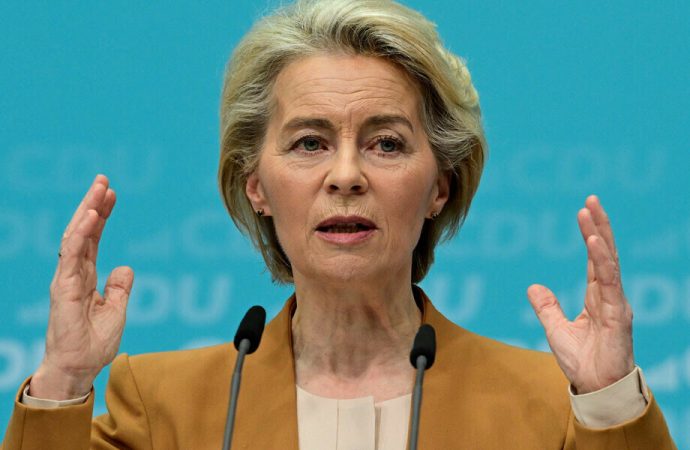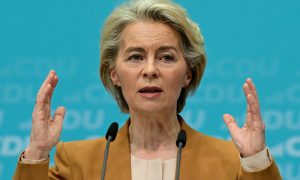Ursula von der Leyen, the first woman to serve as President of the European Commission, is seeking a second term amid a complex political landscape. Her re-election bid is pivotal for the European Union’s stability and future direction, especially given the rise of far-right parties and significant geopolitical challenges. Current Political Landscape Von der Leyen’s
Ursula von der Leyen, the first woman to serve as President of the European Commission, is seeking a second term amid a complex political landscape. Her re-election bid is pivotal for the European Union’s stability and future direction, especially given the rise of far-right parties and significant geopolitical challenges.
Current Political Landscape
Von der Leyen’s bid for a second term comes at a critical time for the EU, marked by political, economic, and security challenges. The European People’s Party (EPP), the largest political group in the European Parliament, has endorsed her candidacy. This endorsement is crucial, as the EPP is expected to maintain its dominant position in the upcoming elections (POLITICO) (DW).
However, her re-election is not guaranteed. She needs to secure the support of at least 361 Members of the European Parliament (MEPs) in the newly elected Parliament. This task involves negotiating with various political groups, including the Socialists and Democrats (S&D) and Renew Europe, which supported her first term (POLITICO).
Support and Opposition
While von der Leyen has strong backing from the EPP, there are notable dissenters within her own party, particularly from French EPP members who view her as too closely aligned with French President Emmanuel Macron. Additionally, securing support from the far-right European Conservatives and Reformists (ECR), led by Italy’s Prime Minister Giorgia Meloni, might alienate her centrist and left-leaning supporters (POLITICO) (euronews).
Key Challenges and Strategies
One of von der Leyen’s significant challenges is navigating the rise of far-right parties across Europe. These parties have made substantial gains in countries like France and Germany, threatening the centrist consensus that has traditionally governed the EU. To counter this, von der Leyen must strike a delicate balance, securing broad-based support without compromising on core EU values (DW).
Her campaign focuses on several key promises:
- Economic Competitiveness: Enhancing the EU’s economic position and supporting farmers amid rising costs.
- Security: Strengthening Europe’s defense capabilities and providing continued support to Ukraine.
- Migration: Implementing stricter controls on irregular migration, including controversial proposals to outsource asylum applications (DW) (euronews).
Comparative Analysis: Von der Leyen’s First Term vs. Potential Second Term
| Aspect | First Term Achievements | Second Term Proposals |
|---|---|---|
| Climate Policy | Ambitious Green Deal initiatives | Focus on economic growth and security, with climate policies potentially sidelined |
| Defense | Strengthened EU defense policies | Continued military and financial support for Ukraine, bolstering EU defense |
| Migration | Managed through existing EU frameworks | Proposing outsourcing of asylum applications to third countries |
| Economic Policy | Navigated Brexit, COVID-19 recovery | Enhancing competitiveness and supporting farmers |
Analysis of Political Support
| Political Group | Support Level | Key Issues |
|---|---|---|
| EPP (European People’s Party) | High | Internal dissent, especially from French members |
| S&D (Socialists and Democrats) | Moderate | Concerns about alliances with far-right parties |
| Renew Europe | Moderate | Potential alignment with centrist policies |
| ECR (European Conservatives and Reformists) | Potential support | Risk of alienating centrist and left-leaning groups |
| Greens | Low | Conflict over climate policies |
Conclusion
Ursula von der Leyen’s bid for a second term as European Commission President is a complex endeavor shaped by the current political climate and the need for broad-based support across the EU’s political spectrum. Her ability to navigate these challenges will determine her success in securing a second term and shaping the future of the European Union.
For more detailed analysis and updates on this topic, you can refer to sources such as Politico Europe, DW, and Euronews.

















